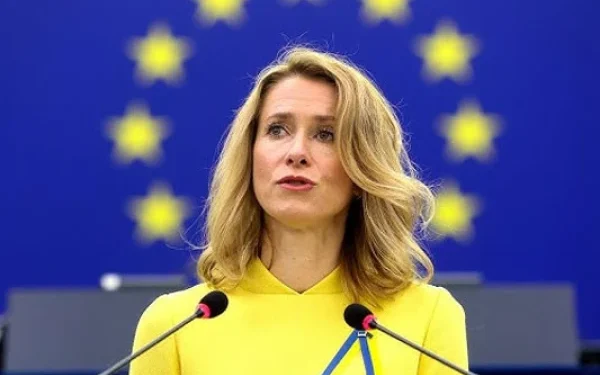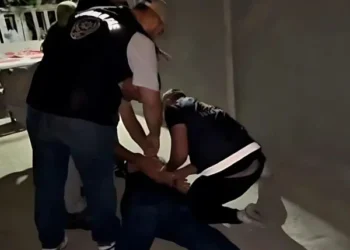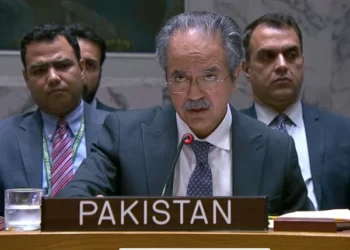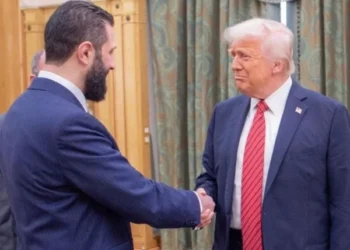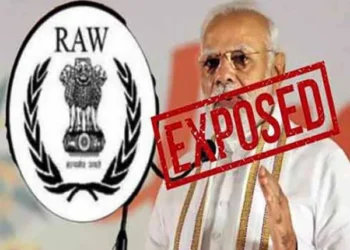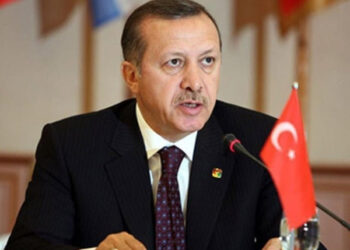Introduction: Growing International Outcry Over Gaza Conflict
The European Union has issued a sharp rebuke of Israel’s military operations in Gaza, with senior EU foreign affairs official Kaya Kalas criticizing Israel for “crossing all limits” under the guise of self-defense. Amid mounting casualties and escalating violence, calls for accountability and respect for international law are growing louder across the global community.
Kaya Kalas’s statement, given in a high-profile interview with an international news agency, reflects a broader shift in Europe’s approach to the Israel-Palestine conflict, emphasizing the urgent need for restraint, adherence to human rights, and a long-term political solution.
EU’s Foreign Policy Chief Slams Israeli Bombardment
Kaya Kalas, who currently heads the European Union’s foreign affairs and security policy wing, did not mince words while criticizing Israel’s military operations in Gaza. She asserted that Israel has gone far beyond acceptable limits in its military response, questioning the legitimacy of its actions under the international legal framework of self-defense.
According to Kalas, despite repeated calls for ceasefire and de-escalation, Israel’s continuous bombardment of civilian areas reflects a blatant disregard for international humanitarian law and basic human rights norms.
“This is not how a country that claims to respect democratic values and human rights should act,” she said, highlighting the grave humanitarian crisis unfolding in Gaza as a result of the ongoing conflict.
Humanitarian Crisis in Gaza: A Growing Concern
The situation in Gaza has deteriorated sharply over recent months, with thousands of Palestinians killed or injured and critical infrastructure, including hospitals, schools, and residential buildings, destroyed in airstrikes.
International human rights organizations, including Amnesty International and Human Rights Watch, have already accused Israel of committing potential war crimes. They cite the disproportionate use of force, indiscriminate bombings, and the targeting of civilian populations as evidence of serious breaches of international law.
Kalas echoed these concerns, noting the overwhelming number of civilian casualties, especially women and children. “These painful scenes should not be witnessed anywhere, least of all in a region that has suffered decades of conflict and injustice,” she lamented.
Israel’s Justification: Right to Self-Defense
Israel maintains that its actions are carried out in self-defense, particularly in response to rocket attacks and militant activities emanating from Gaza. Israeli officials argue that Hamas and other militant groups deliberately use civilian areas as shields, making military responses complex and unavoidable.
However, critics argue that the scale and intensity of Israel’s attacks far exceed the principle of proportionality, a core tenet of international humanitarian law. Kaya Kalas pointed out that legitimate self-defense does not justify collective punishment or the targeting of civilian infrastructure.
The EU, while recognizing Israel’s right to protect its citizens, has repeatedly urged for measured responses that prioritize the protection of innocent lives.
Ceasefire Calls Ignored: EU’s Growing Frustration
One of the most alarming points raised by Kaya Kalas was the apparent disregard for ceasefire agreements. Despite several international efforts to broker temporary truces, including initiatives by the United Nations, Egypt, and Qatar, violence has continued unabated.
“The recent bombings, even after formal ceasefire declarations, show the aggressive intentions on the ground and a worrying disrespect for international agreements,” Kalas emphasized.
Her comments reflect growing frustration within European capitals over Israel’s unwillingness to adhere to diplomatic solutions, further straining EU-Israel relations.
The Only Way Forward: A Two-State Solution
Kalas underscored the European Union’s long-standing position that the only sustainable path to peace in the Middle East is the realization of a two-state solution. Under this framework, Israel and Palestine would coexist peacefully within internationally recognized borders.
“There is no way forward for Palestine except through the two-state solution,” Kalas stated firmly. She argued that any resolution that ignores the legitimate rights of Palestinians to self-determination and statehood is doomed to fail.
The EU has consistently called for the resumption of direct negotiations between Israel and Palestine, based on the 1967 borders with mutually agreed land swaps, Jerusalem as a shared capital, and security arrangements acceptable to both parties.
Without a genuine commitment to these principles, Kalas warned, peace in the region would remain a distant dream.
EU’s Role in Mediating Peace
The European Union, as a significant international actor and donor to Palestinian territories, has a vested interest in seeing stability restored in the region. The EU provides substantial humanitarian aid to Gaza and supports various development projects aimed at rebuilding critical infrastructure and promoting civil society.
Following Kalas’s remarks, there are calls within EU circles for a more assertive diplomatic role, including the possibility of sanctions against violations of international law and greater support for Palestinian rights at international forums such as the United Nations.
Some EU member states, including Ireland, Belgium, and Spain, have already pushed for a reevaluation of the EU’s relations with Israel if human rights abuses continue.
International Response: A Divided Global Community
The international reaction to the conflict remains divided. While countries like Turkey, South Africa, and much of the Arab world have condemned Israel’s actions, others, including the United States, continue to defend Israel’s right to self-defense, albeit with growing calls for restraint.
This division has complicated efforts to forge a unified international response. Nevertheless, pressure is mounting on Israel to halt its military campaign and engage seriously in peace negotiations.
Kaya Kalas’s strong statement reflects a growing consensus in parts of Europe that the status quo is untenable and that meaningful change is urgently needed.
Conclusion: A Critical Juncture for Gaza and International Law
The European Union’s condemnation of Israel’s actions in Gaza marks an important moment in international diplomacy. By calling out violations of international law and emphasizing the catastrophic human toll of the conflict, the EU is reaffirming its commitment to human rights and the rule of law.
Kaya Kalas’s insistence on a two-state solution and respect for Palestinian rights echoes the broader sentiment that peace cannot be achieved through force alone.
As the humanitarian crisis deepens, the world watches to see whether diplomatic efforts can halt the bloodshed and bring hope to a region mired in decades of violence. Without immediate action, the consequences for Gaza — and for global stability — could be dire.
















